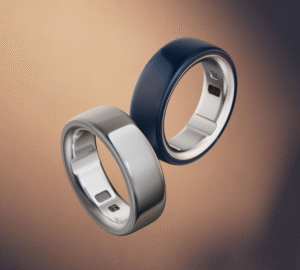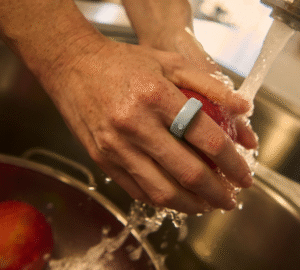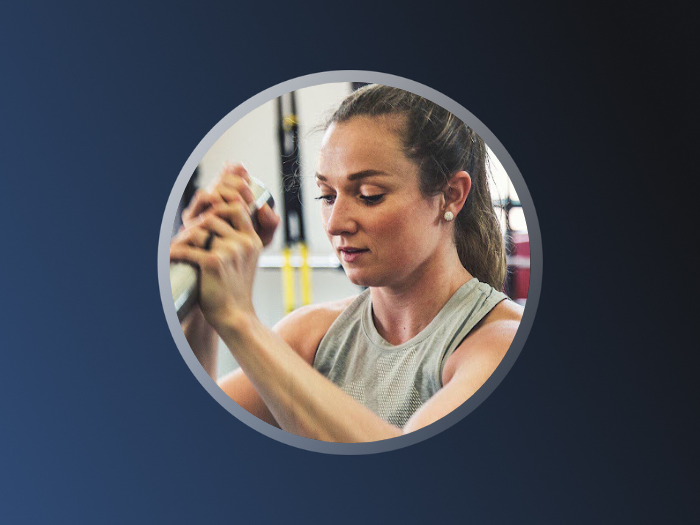Who: Rosie M., 33, Toronto Canada
Oura member for: 2 years
Surprising insight: Training during the day, instead of late at night, turned out to be much better for my sleep! When I can’t control what time of day I train, I developed a routine to help me wind down and prep for a good night’s sleep.
Tell us about yourself.
I am currently doing my MBA at Stanford Graduate School of Business, and I’m an MBA Intern at ŌURA for the summer. I have a Bachelor’s degree and Master’s of Science from the University of Toronto. I competed in the sport of Trampoline, representing Canada on the national team from the age of 16. My childhood dream was to compete at the Olympic Games, and I had that opportunity four times (2008, 2012, 2016, and 2020) — winning Gold in 2012 and 2016. At the Rio 2016 Olympic Games, I was selected as Team Canada’s flag bearer in the Opening Ceremonies.
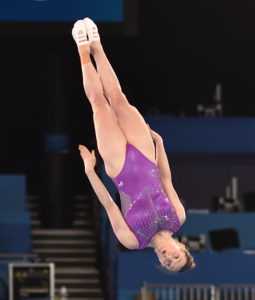 How did you discover Oura?
How did you discover Oura?
I was introduced to Oura during the qualifying process for the 2020 Tokyo Olympic Games. A few years prior, I had suffered from pretty debilitating concussions that impacted my sleep. I recognized very quickly that there was a direct correlation between the quality of my sleep on my recovery and training. I also recognized a strong correlation between my sleep and ability to manage stress and anxiety — which, given the stress of qualifying for an Olympic Games, was critical. I started using the Oura Ring to develop an understanding of which behaviors led to better sleep. This helped me understand how nutrition, recovery routines, pre-bed routines, and training load ultimately led to the best performance.
What are the biggest insights you’ve learned since using Oura?
1. More is not always better
Training for the Olympics is extreme. For a number of years, I got into a pretty brutal pattern. I would push myself beyond my limits physically and mentally, truly believing “more is always better.” This led to exhaustion and injuries — major ones —that would set me back. My worst injuries and crashes always happened when I was on the verge of, or actually experiencing, burnout.
I had to learn to believe in the power of recovery. I had to learn that taking a step back before reaching the breaking point would lead to greater improvements in the long run.
With the support of my team, and with the visual data from Oura, I was able to understand my behaviors and develop healthier, and more sustainable, patterns. I saw that when I had better sleep, allowing for better recovery, I was able to train with higher quality and higher intensity. I saw that when I listened to my body and had lower scores, having a lighter day was not detrimental, but further helped my progress (and mental health).
2. The time of day I train matters
For the majority of my life, I trained late in the evening (7:30pm to 11pm) in a high-intensity sport. With the pandemic, my routine changed, so I trained in the daytime. Immediately, my sleep was better. When I was not able to control exactly when I trained, I was able to develop a wind-down routine that helped me go from a heightened state to a bed-ready state. This included a hot shower, stretching, some breathwork, and then reading on my Kindle in the dark. (Find breathwork exercises in Oura’s Explore content.)
3. How nutrition impacts my sleep
In terms of nutrition, I was able to identify that having caffeine after 11am dramatically increased my sleep latency. Any amount of alcohol (even a small glass of wine) impacted the quality of my sleep (restfulness, REM, and deep sleep) which ultimately led to me having no alcohol on evenings before I trained, and, within 6-12 months of major competitions, cutting out alcohol all together with very few exceptions.
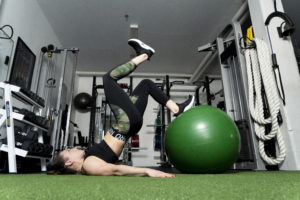
Rosie’s #1 tip for Oura members:
It’s not always about the specific numbers you see, but learning how to pay attention to what those numbers mean for you, your body, and your life. Building a stronger understanding of the relationships between your behaviors and how you feel, using Oura as a tool to visualize and track the changes, can truly change your quality of life and performance in all aspects of your life.
Keep up with Rosie on Instagram @RosieMacLennan or Twitter @RosieMacLennan.
What’s Your Oura Story?
Everyone’s story is unique, and we’d love to hear yours. Share your story here.







